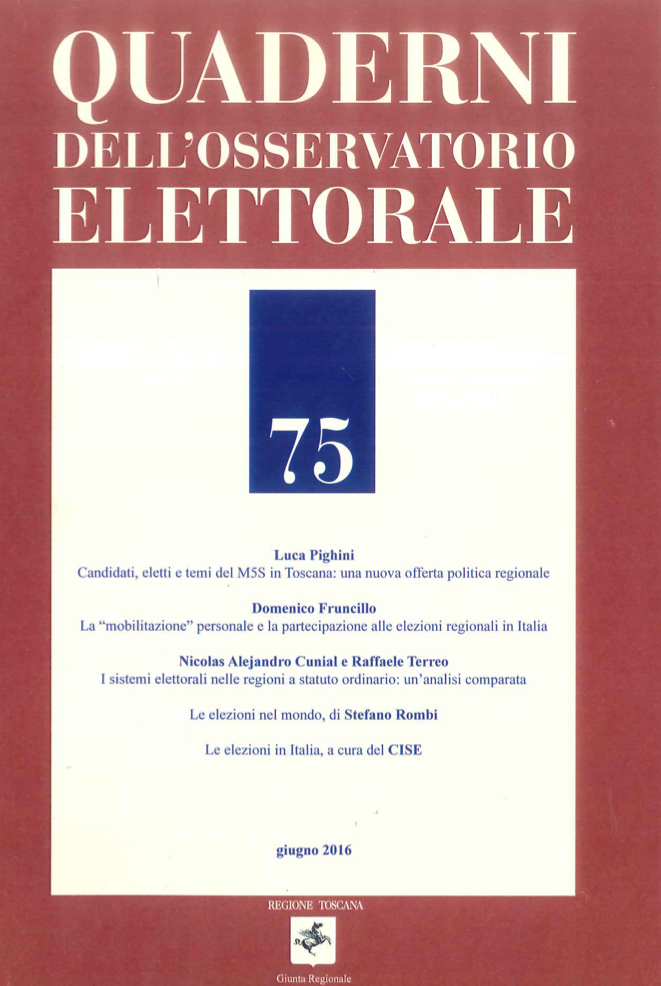Published 2016-06-30
Keywords
- Regional election,
- voter turnout,
- political parties,
- political personalisation
How to Cite
Abstract
The decline of voter turnout in regional elections is much higher than in parliamentary elections. According to many scholars, participation in second-order elections – including those for regional institutions – has fallen to a greater extent due to their dependence on a weaker form of mobilisation based on a sense of proximity to political parties and their local organisational structure. In this paper, regional elections are treated as relatively autonomous from other consultations. In fact, alongside more general factors, it is possible to identify specific dynamics which shape the level of voter turnout in regional elections. The principal focus of the paper is on the potential for voter mobilisation expressed by candidates. Political personalisation is analysed with reference to apical figures in the political parties and institutions, as well as other figures that are politically active in intermediate, non-executive roles. Some indicators of "dual personalisation" are identified, the first of which relates to the performance of the presidential candidates, whilst the second involves candidates for the regional assembly. The analysis suggests that the personalisation of presidential elections is positively associated with voter turnout. The paper considers several other factors, which "compete" with political personalisation. Amongst these, a positive association is found between higher levels of electoral participation and the percentage of citizens who participate in the social activities of non-profit-making organisations.


